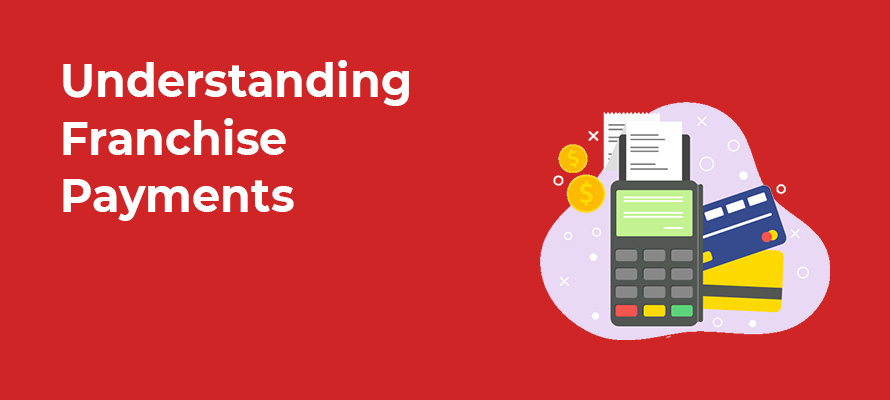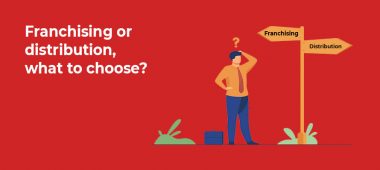Here’s everything you need to know about the franchise fee
There are two groups involved in a franchise, the franchisor (the Company which leases the rights to the system and business name), and the second one is the person who purchases it, which is the franchisee.
For an initial sum of money, the right is sold by the franchisor to the franchisee, also called the franchise fee or up-front entry fee. Once the contract has been signed, this money will be paid. The franchise agreement contract details both the franchisee’s responsibilities and the franchiser and is usually for several years a specific length of time. The contract must be renewed once it expires,. an impact gets created by the State laws on the options for this renewal.
The rights to use the system and name are just included in the initial franchise fee, and sometimes procedures, training, assistance like site selection and manuals. Any of the necessary fixtures, inventory, furniture, or real estate is not included.
The franchisee must pay royalty fees to the franchisor in addition to the franchise fee. These payments can also be set up as a fixed amount and are usually taken as a percentage of sales. In the franchise agreement, The terms of these fees will be spelled out. These payments are for the ongoing services and support that the franchisor provides. Franchisors may also sell supplies directly to their franchisees.
The Franchise Payments
There is a couple of fees that you should expect to pay when purchasing a franchise business. Typically there is an initial fee that you need to pay, which is referred to as the Initial Franchise Fee. There is always a recurring fee that is typically due weekly or monthly in addition to this. This fee is also known as the royalty fee.
So, let’s have a look at what exactly the royalty fee is? If you’re expecting to become a franchisee or are debating to become one, this article is surely made for you.
In this article, you will learn everything in your franchise business you need to know about royalty fees and what it is, how it works, why franchisors charge royalty fees, why you’re expected to pay them and how it gets calculated.
What is a Royalty Fee?
An ongoing payment paid by the franchisee to the franchisor is called a royalty fee. An ongoing fee is required Almost for all franchise systems to their franchisees. This is how things work:
The franchisor goes through many iterations of their business model and develops the initial business until they have a ready for successful expansion model. Many businesses are converted into a franchise by their owners. Once a franchise system is started, new locations known as Company Owned locations by the owners can continue to open on their own, under an agreement called franchise agreement, which gives license to open similar businesses in other locations for others (also called as Franchise locations). Franchisees are the individuals that buy these franchises.
A royalty fee is a recurring charge where the franchisee pays the franchisor for the continued use of the franchisor’s marks, systems, products usually on a weekly, monthly or quarterly basis,
Now, The question will come into your mind, “Why is it necessary for someone to pay royalty fees continuously after they’ve paid a significant fee to purchase the franchise?” Continue reading for getting the answers; we’ll further explain why.
Why Do Franchisors Charge Royalty Fees?
some reasons for franchisors, that why they charge ongoing royalty fees are given as follows:
On-Going Training
A lengthy and comprehensive initial training is provided by the Franchisors to teach the new franchisees everything they have learned for operating and launching the business. The franchise fee collected initially from new franchisees covers the costs associated with the initial training. However, while franchisees are operating their business, the franchisors typically provide several ongoing pieces of training. The improving of customer service systems and Training the franchisees for new products, equipment, new marketing methods, and services are things that a good franchisor provides continuously on an ongoing basis. Royalty fees help the costs for such training to get absorbed.
Ongoing Support
To help the franchisees with their business, the Franchisors have a vested interest. It could be simple to offer guidance and answer questions. Maintaining and Providing costs money for this support network, As the royalty fees help to pay for these costs.
Marketing and Advertising Material
To create brand continuity at all locations, Franchisors provide new and updated and advertising material to their franchisees, no matter by whom they are owned. Logistical support is offered. Some franchisors may – such as payroll, accounting, distribution, or supplies. For marketing material or maintaining the support, Royalty fees help offset the cost of production of such.
Earn Money for their Providing a Proven Business Model. As the original
For their efforts, franchisors deserve to be compensated for the entrepreneurs made for successfully launching the first business. They worked out the issues, created a proof of concept, and then made it scalable. The founder assumed all of the risks. This is no easy feat! The franchisor is entitled to a royalty paid for all the mistakes along the way and built a successful business,
Monetize intellectual property
The Company’s intellectual property is what business scalable and able to be franchised as it is an important part. Franchisees pay the royalty fee to franchisors, which is a small fee for using the Company’s intellectual property and the marks.
How Are Royalty Fees Calculated?
First, decide on how the royalty will be structured to properly determine how a royalty fee should be calculated. The two common ways that royalty fees get structured are as follows:
The flat royalty is the first type. Regardless of how much business they do, Franchisees pay a set amount. These Structures like this are paid out monthly.
For franchisors, Flat royalties are typically more advantageous just because they guarantee a steady residual paycheck. Some franchisees prefer flat royalties. An easier, easily accountable line item is provided by them – for each month a steady expense. Difficulties come when franchisees still are required to pay the same royalty even there sales are down.
Having a vested interest in a franchisee’s business is the second kind of royalty structure. In this model, which is used by most franchisors typically, a weekly or monthly fee is charged by the franchisor, which is equal to the franchisee’s gross sales percentage.
A 5-8% royalty is the common percentage for many industries on the total gross sales made. A minimum fixed amount is set by the franchisor; in some cases, that has to be paid every month.
How Do You Pay for a Franchise?
Introduction
Whether you’re joining the Burger King franchise system or purchasing a whopper from Burger King, the old saying holds that: a free lunch? No, there’s no such thing. You need to pay a fee When you first get started running a franchise for allowing you to get entered into that franchise. This is the largest fee that you will normally pay a franchisor are these fees typically range depending on the franchise between $5,000 and $1,000,000. as a way of expanding the franchise to recoup the costs is why the franchisor charges this fee and for continuing the growth. This can take a long time to make back and is a major outlay as it is a necessary step From a franchisee perspective. Aspiring business owners should ascertain how much they can afford and must understand how much capital is available to them. Liquidity is known as the cash you have at your disposal, and for increasing balance in your bank account, there are numerous ways. As a result, the capital people actually can use for investments don’t get’s realized by many people, like for launching a branch of the franchise.
So, let’s have a look at one of the methods which are given as follows:
Cash
The emergency cash reserves of 3-6 months of living expenses should be maintained by Consumers. That’s what Conventional wisdom suggests. This number is important just because under the assumption indiscriminately, some people may save that the money they accrue more in their bank account, the better it is. Due to inflation, That is far from true. Relative to the costs of goods, the value of the cash in your account actually decreases over time & even services in the market. To reduce your wealth, Stashing away cash without investing it is, therefore, a surefire way. For earning a return back from your savings, it is crucial to find some way; you choose to become a franchisee whether or not It is assumed that the method you are considering is franchising For our purposes. The situation of every person is different, As, any cash saved over the six months for most families can be used for the franchise fees that is initial.













